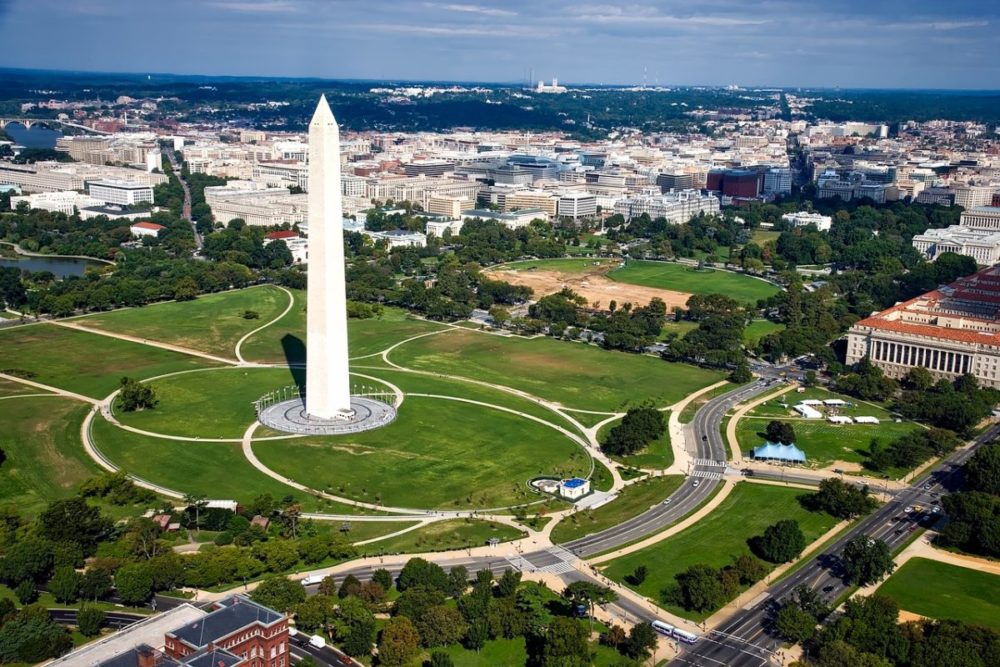Successful innovation and commercialization throughout the tech industry, especially in life sciences and so-called “deep tech” specialties, have sustained the DC-Baltimore region’s reputation as one of the world’s most vibrant startup ecosystems.
The latest evaluation of the DMV’s entrepreneurial health came from the latest iteration of the annual Global Startup Ecosystem Report, which research organization Startup Genome publicly released today. DC held onto the 11th place spot for the second year in a row, just missing the top 10 but outpacing such global economic hubs as 12th-place Tokyo, 15th-place Paris and 20th-place Sydney.
DC was frozen out of the top 10 by a list of regions only about halfway dominated by US-based ecosystems: Silicon Valley (#1), New York City (tied for #2 with London), Boston (#4), Los Angeles (#6) and Seattle (#9). In a report filled with surprises and increasingly emergent players (including for at least two of Technical.ly’s core markets), DC was noticeably consistent. It was also far more consistent than it had been in 2019 and 2020, when the respective rankings shot from 16th to 10th place before dropping to 11th last year.
The DC metrics also reflected a region so geographically spread that Baltimore — Maryland’s largest city, which boasts an identity so sufficiently distinct that most of its denizens don’t readily count themselves as part of the already-spread DMV — was actually incorporated within it, according to Startup Genome CEO JF Gauthier.
“Our definition of a startup ecosystem is 100 km — a one-hour drive — around a city center, an area comprising a shared pool of resources and knowledge that is considered ‘local’ because [of what is accessible to] all participants,” Gauthier told Technical.ly via email, adding that the geographic parameters reflect regions where “no one needs to move to participate, investors can drive to visit and talk” and “employees can be hired without relocation packages.”
Within that definition, the report noted that DC boasts one of North America’s top 10 startup funding ecosystems, with a total of $2.2 billion in early-stage funding between 2019 and 2021. It also reported 516 exits, worth nearly $29 billion, from 2017 to 2021 — figures that exceed the global average of 101 exits worth $11.3 billion. Its $56 billion ecosystem valuation between 2019 and 2021 also nearly doubles the global average of $28.6 billion.
Read the full reportThe report highlighted startup funding and support entities like 1863 Ventures, Halcyon and Village Capital as both Startup Genome partners and significant contributors to the local scene’s vibrancy. It also noted the importance of the region’s highly experienced talent pool and initiatives like DC Startup Week, Gender Equality in Tech (GET) Cities and TiE DC University PitchFest that generate interest in the region.
Gauthier echoed the report’s particular spotlights on DC’s life sciences sector, fintech and deep tech — a term referencing fields like artificial intelligence and blockchain — as especially significant. But he suggested that DC needs to learn from top 10 global cities if it wants to crack those ranks.
“DC stands to gain a lot from learning from New York City, which has sailed past Boston in the last few years by building very sophisticated sub-sector policies rooted in specialized campuses bringing together academia, large corporations and startups in one place,” he said. “This could help DC build on its strengths in life sciences but also in other deep tech sub-sectors such as AI, blockchain and cybersecurity — the latter possibly including government. ”
“The challenges are very different from competing with top 20 ecosystems to competing with top 10 ecosystems,” he added. “Top 10 ecosystems compete aggressively and are a mix of startup ecosystems developed on top of the semiconductor and computer industries — with decades of experience rooted in entrepreneurs, executives, and investors — or megalopolis that have developed sophisticated startup policies. If it is to maintain or improve its position, DC will need to learn from others and give itself a well-structured set of startup policies and programs.”
Join the conversation!
Find news, events, jobs and people who share your interests on Technical.ly's open community Slack

Delaware daily roundup: Delmarva Power vendor stats; DelDOT's $15M federal grant; 50 best companies to work for

Delaware daily roundup: Over 4,000 Black-owned businesses uncovered; Dover makes rising cities list; a push for online sports betting

Philly daily roundup: Women's health startup wins pitch; $204M for internet access; 'GamingWalls' for sports venues


